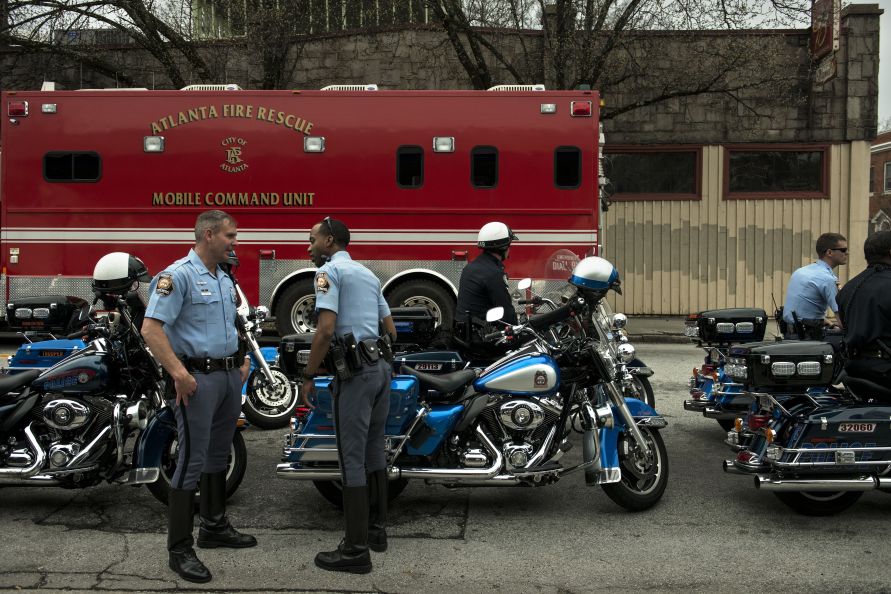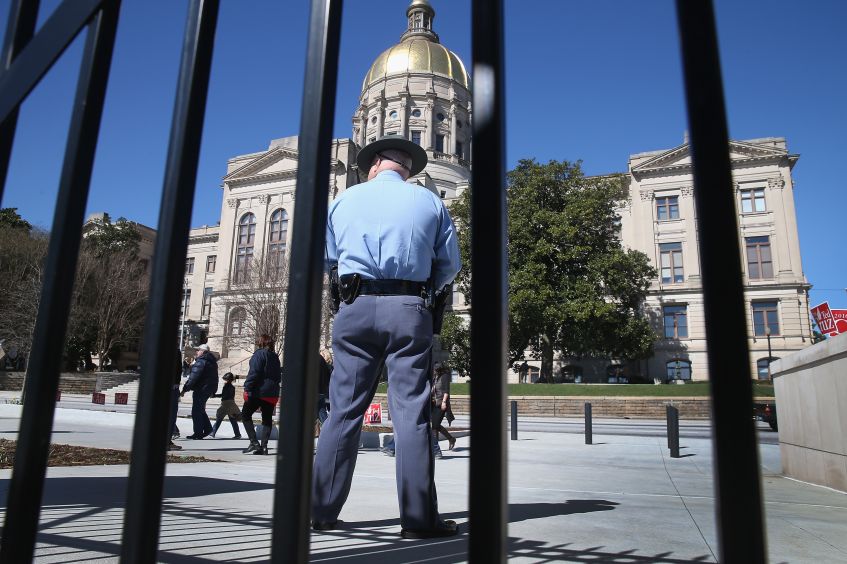In today's world, emergency services play a vital role in ensuring public safety. The phrase "call police 12" has become a common expression in certain regions, referring to the emergency number people dial when they need immediate assistance from law enforcement. Understanding why people call police 12 and the circumstances that prompt such actions is crucial for fostering a safer community. This article dives deep into the reasons behind this phenomenon, offering insights into the role of police in emergency situations.
Emergency numbers like "police 12" are designed to provide rapid response to critical situations. Whether it's a crime in progress, a threat to personal safety, or a potential disaster, these numbers are lifelines for individuals in distress. By exploring the reasons people call police 12, we can gain a better understanding of the challenges faced by law enforcement and the importance of public awareness.
Throughout this article, we will examine various scenarios that lead individuals to contact emergency services. From crimes and accidents to mental health crises and natural disasters, we will uncover the motivations behind these calls. Additionally, we will discuss how the system operates and the measures in place to ensure efficient response times. Let's delve into the world of emergency services and uncover why people call police 12.
Read also:How Tall Is Bad Bunny Discovering The Height And More About This Iconic Artist
Table of Contents
- Why Do People Call Police 12?
- Crime and Public Safety
- Accidents and Emergencies
- Mental Health Crises
- Natural Disasters and Catastrophes
- How the Police Response System Works
- Statistics on Emergency Calls
- Public Responsibility in Emergency Situations
- Challenges Faced by Law Enforcement
- The Future of Emergency Response
Why Do People Call Police 12?
Understanding the Emergency Number
When people refer to "police 12," they are typically referencing an emergency number used in certain countries or regions. While the number may vary depending on the location, the purpose remains the same: to provide immediate assistance during critical situations. The reasons for calling police 12 are diverse and often reflect the complexities of modern society.
One of the primary reasons people call police 12 is to report crimes or suspicious activities. Whether it's a break-in, theft, or domestic violence, individuals rely on law enforcement to intervene and restore order. Additionally, emergencies such as car accidents, fires, and medical crises often prompt people to seek help through this number.
Common Scenarios That Prompt Calls
There are several common scenarios that lead people to dial police 12:
- Crime Prevention: Individuals may call to report suspicious behavior or crimes in progress.
- Personal Safety: Victims of harassment or threats may seek immediate protection.
- Medical Emergencies: In cases where medical assistance is required, police may coordinate with paramedics.
- Traffic Incidents: Accidents on the road often require police intervention to manage traffic and investigate the cause.
Each of these scenarios highlights the critical role that emergency services play in maintaining public safety.
Crime and Public Safety
The Role of Police in Crime Prevention
Law enforcement agencies are at the forefront of crime prevention and resolution. When people call police 12, they expect swift action to address criminal activities. Officers are trained to handle a wide range of situations, from minor disturbances to major crimes. Their presence can deter potential offenders and reassure the public that their safety is a priority.
Data from the FBI's Uniform Crime Reporting (UCR) Program shows that timely intervention by police can significantly reduce crime rates. In 2022, approximately 7.7 million crimes were reported in the United States alone, underscoring the importance of effective emergency response systems.
Read also:Will Smith Accident The Untold Story And Key Details
Reporting Crimes: What to Expect
When reporting a crime to police 12, individuals should be prepared to provide key details:
- Location of the incident
- Nature of the crime
- Descriptions of suspects or vehicles involved
- Any immediate threats to personal safety
By providing accurate information, callers can help law enforcement respond more effectively and efficiently.
Accidents and Emergencies
Handling Traffic Accidents
Traffic accidents are one of the most common reasons people call police 12. Whether it's a minor fender bender or a serious collision, police officers are often required to assess the scene, document the incident, and ensure the safety of all parties involved. In cases involving injuries, they may also coordinate with medical personnel to provide necessary care.
According to the National Highway Traffic Safety Administration (NHTSA), there were over 6 million reported traffic crashes in the United States in 2021. This statistic emphasizes the need for a well-functioning emergency response system capable of handling such incidents promptly.
Other Types of Emergencies
Beyond traffic accidents, people may call police 12 for a variety of emergencies, including:
- Fire outbreaks
- Natural gas leaks
- Medical emergencies requiring police intervention
In each of these situations, police officers work in collaboration with other emergency services to mitigate risks and protect lives.
Mental Health Crises
The Intersection of Mental Health and Emergency Services
Mental health crises are increasingly becoming a reason for people to call police 12. Individuals experiencing severe anxiety, depression, or suicidal thoughts may require immediate intervention. While mental health professionals are ideally suited to handle such cases, police officers are often the first responders due to their accessibility through emergency numbers.
According to the National Alliance on Mental Illness (NAMI), approximately 1 in 5 adults in the United States experiences mental illness each year. This highlights the growing need for training and resources to equip law enforcement officers with the skills to address mental health-related emergencies effectively.
Challenges in Responding to Mental Health Calls
Responding to mental health crises poses unique challenges for police officers. Without proper training, interactions can escalate unnecessarily, leading to negative outcomes. To address this issue, many jurisdictions have implemented Crisis Intervention Team (CIT) programs, which provide specialized training to officers in handling mental health-related situations.
Natural Disasters and Catastrophes
Police Role in Disaster Response
Natural disasters such as hurricanes, earthquakes, and floods often overwhelm local resources, prompting people to call police 12 for assistance. Law enforcement agencies play a crucial role in disaster response by maintaining order, coordinating rescue efforts, and providing information to affected communities.
For example, during Hurricane Katrina in 2005, police officers worked tirelessly to evacuate residents, protect property, and ensure public safety. Their efforts were instrumental in minimizing the loss of life and property damage.
Coordination with Other Agencies
In large-scale disasters, police officers collaborate with federal agencies such as the Federal Emergency Management Agency (FEMA) to provide comprehensive support. This coordination ensures that resources are allocated efficiently and that communities receive the assistance they need during times of crisis.
How the Police Response System Works
Dispatch and Communication
When someone calls police 12, the call is typically routed to a centralized dispatch center. Dispatchers are trained to gather essential information quickly and assign the appropriate resources to the scene. They also maintain constant communication with responding officers, ensuring that they have real-time updates on the situation.
Advanced technologies such as Computer-Aided Dispatch (CAD) systems and GPS tracking enhance the efficiency of the response process, allowing dispatchers to allocate resources based on proximity and availability.
On-Scene Response
Once officers arrive at the scene, they assess the situation and take necessary actions to ensure public safety. This may involve securing the area, providing first aid, or making arrests. Their ability to adapt to dynamic situations is critical in resolving emergencies effectively.
Statistics on Emergency Calls
Key Data on Emergency Services
Understanding the volume and nature of emergency calls can provide valuable insights into the demands placed on law enforcement agencies. According to a report by the National Emergency Number Association (NENA), emergency call centers in the United States receive over 240 million calls annually. Of these, approximately 80% are related to public safety.
Furthermore, the report highlights the importance of accurate caller identification and location data in ensuring timely responses. Advances in technology, such as Next Generation 911 (NG911), aim to improve the accuracy and reliability of emergency call systems.
Public Responsibility in Emergency Situations
When to Call Police 12
While emergency services are vital, it's important for the public to use them responsibly. Calling police 12 for non-emergency situations can divert resources away from critical cases, potentially endangering lives. To avoid misuse, individuals should familiarize themselves with the appropriate numbers for non-emergency assistance.
For example, many jurisdictions offer a non-emergency number for reporting minor issues such as noise complaints or lost property. By using these numbers appropriately, the public can help ensure that emergency resources are available for those who truly need them.
Staying Safe During Emergencies
During an emergency, staying calm and following instructions from authorities is crucial. Individuals should also take steps to prepare for potential emergencies by creating emergency kits, developing evacuation plans, and staying informed about local risks.
Challenges Faced by Law Enforcement
Resource Allocation and Budget Constraints
One of the primary challenges faced by law enforcement agencies is resource allocation. With limited budgets and increasing demands, officers often find themselves stretched thin. This can lead to longer response times and reduced effectiveness in handling emergencies.
To address this issue, many agencies are exploring innovative solutions such as community policing initiatives and partnerships with private organizations. These efforts aim to build trust and collaboration between law enforcement and the communities they serve.
Technological Advancements and Training
As technology continues to evolve, law enforcement agencies must adapt to remain effective. This includes investing in advanced communication systems, data analytics tools, and training programs for officers. By embracing these advancements, agencies can enhance their ability to respond to emergencies and improve overall public safety.
The Future of Emergency Response
Innovations in Emergency Services
The future of emergency response holds promise with the advent of new technologies and methodologies. Artificial intelligence, drones, and autonomous vehicles are just a few examples of innovations that could revolutionize how emergency services operate. These advancements have the potential to improve response times, increase accuracy, and enhance the safety of both officers and the public.
However, it's important to balance technological progress with ethical considerations and ensure that these tools are used responsibly and transparently.
Building Resilient Communities
Ultimately, the goal of emergency services is to build resilient communities capable of withstanding challenges and emerging stronger. This requires collaboration between law enforcement, government agencies, and the public. By fostering trust, promoting education, and investing in infrastructure, we can create a safer and more secure future for all.
Conclusion
In conclusion, understanding why people call police 12 is essential for improving emergency response systems and enhancing public safety. From crime prevention to disaster response, the role of law enforcement in safeguarding communities cannot be overstated. By addressing challenges such as resource allocation and technological advancements, we can ensure that emergency services remain effective and accessible for everyone.
We invite you to share your thoughts and experiences in the comments below. Additionally, feel free to explore other articles on our site for more insights into public safety and emergency preparedness. Together, we can make a difference in creating safer communities for future generations.


